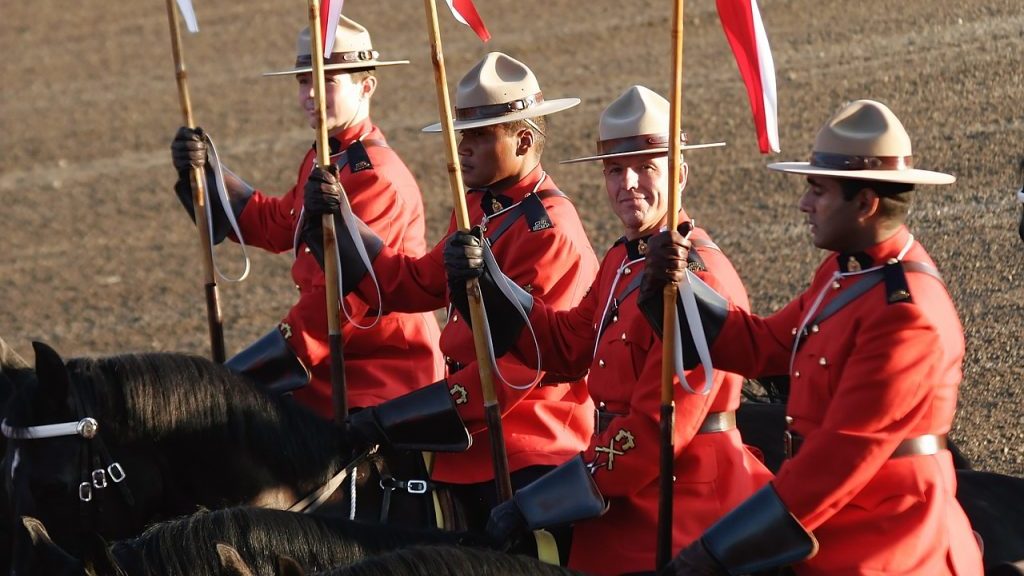HOUSTON, B.C. — The national chief of the Assembly of First Nations (AFN) says the use of force against peaceful protesters of the construction of a pipeline in northern British Columbia is a violation of their human and aboriginal rights.
Fourteen people were taken into custody at a blockade southwest of Houston, B.C., where some members of the Gidimt’en clan of the Wet’suwet’en First Nation had set up a camp to control access to a pipeline project across their territory.
“Building consensus under duress will make the resolution of the situation in northern British Columbia very difficult,” Perry Bellegarde said in a statement on Jan. 8. “Real consensus will be built when the parties, with very different views, come together in meaningful and productive dialogue. And I am confident that they can do this.”
An RCMP statement says the arrests came when officers determined a resolution was unlikely after they spoke with camp members about complying with a court order and removing the blockade.
TransCanada subsidiary Coastal GasLink obtained an injunction from the Supreme Court of British Columbia ordering the removal of obstructions in the area as preliminary work gets underway on a pipeline carrying natural gas from the Dawson Creek area to Kitimat.
Protests took place across the country in support of the Gidimt’en clan members who are opposed to the pipeline.
Bellegarde said the Canadian and B.C. governments have promised to implement UN Declaration on the Rights of Indigenous Peoples but in northern B.C. they are imposing their laws over those of the Wet’suwet’en.
I think now that the Gidimt’en have stepped up and said, ‘No, this is a nation-based issue, this is about sovereignty,
— Jen Wickham
Gidimt’en Clan Member
“If this was really about the ‘rule of law’ then governments would be honouring the rights and title of First Nations in their traditional territories, which are recognized by Canada’s own courts,” he added.
“The AFN supports the governance and decision-making process of the Wet’suwet’en leaders. Canada and B.C. should do the same. There is no reconciliation in the actions that unfolded yesterday.”
Gidimt’en member Jen Wickham said hereditary chiefs had gathered near the camp on Jan. 8.
Wickham was in Prince George where she said 13 people arrested for violating the court order, including her sister Molly Wickham, were scheduled to appear in court.
The Gidimt’en set up a gate in December in support of an anti-pipeline camp that members of the Unist’ot’en, another Wet’suwet’en clan, have held for years.
Wickham, who has fielded calls from India and the United Kingdom about the pipeline resistance, said it’s been “surreal” to see the international response.
She said she believes the issue is gaining attention now because the Gidimt’en have dispelled the myth that it’s only individuals from one clan opposing the project.
“I think now that the Gidimt’en have stepped up and said, ‘No, this is a nation-based issue, this is about sovereignty,’ it’s really sinking in,” she said.
NDP member of Parliament Nathan Cullen, who represents the area, said the protest he witnessed was “determined” but “peaceful.”
He estimated about 200 police officers were used to enforce the court injunction.
Cpl. Madonna Saunderson would not say how many RCMP officers were involved in the operation.
“We have a contingency of police officers involved in this enforcement action,” she said. “We have what is needed, what we feel we need.”
The Mounties placed exclusion areas and road closures near the Morice River Bridge where the blockade was located that prevented Coastal GasLink from getting access to its pipeline right of way.
The company says it has signed agreements with all First Nations along the route for LNG Canada’s $40 billion liquefied natural gas project in Kitimat, but demonstrators argue Wet’suwet’en house chiefs, who are hereditary rather than elected, have not given consent.
LNG Canada announced in October that it was moving ahead with its plans for the Kitimat export facility.
Construction on the 670-kilometre natural gas pipeline — slated to cost $6.2 billion — is scheduled to begin this month.
Protests in different parts of the country were held to back members of the First Nation who oppose the pipeline.
In Ottawa, protesters blocked a major intersection near Parliament Hill and roads were also blocked in downtown Vancouver to accommodate demonstrators outside the B.C. Supreme Court.
Hundreds of protesters marched through downtown Vancouver to the beat of drums and chants to protest a pipeline that they said would harm the natural environment.
Protesters walked through the city for about a kilometre carrying signs that read Frack Off! Coastal Gas and Stand with Wet’suwet’en.
Vancouver protest organizer Natalie Knight said they wanted to show their support for those who were arrested and those fighting against the pipeline.
“The march here shows there are many people in support of the Wet’suwet’en struggle. It also shows that we have friends, that us as Indigenous people, can come into the street and know that we’re not alone.”











Recent Comments
comments for this post are closed